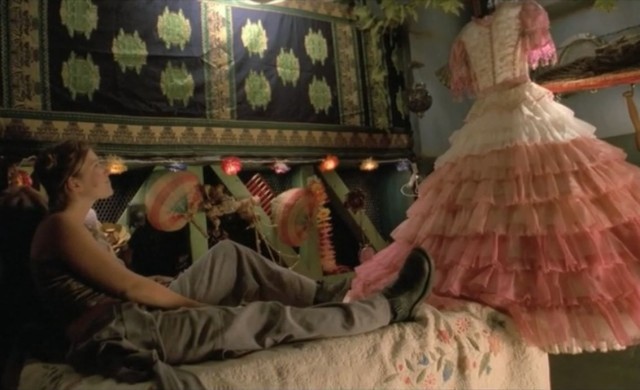How Do Our Brains Change When We Can Buy Anything We Want With One Click?

It was bound to happen. After years of concern about how our brains would change when we could look up any information we wanted in seconds, spearheaded by the Society of Adults Who Told You There Wouldn’t Always Be A Calculator In Your Pocket, now we’re getting some concern that our brains will be further altered by the ability to buy anything we want with a single click, or — in the case of Amazon’s Fire Phone and Firefly technology, by simply waving our phones over stuff and then buying the stuff with a single click.
To quote Slate’s Future Tense:
When your phone encourages you to make up shopping lists of items you encounter daily, it may be difficult not to begin to see the world as made of readily consumable items.
Maybe my brain has already started to change, but I’m not quite sure how that’s different from what we have now. The world is made up of readily consumable items, and the friction doesn’t come from the time it takes to type “Amazon.com Crocs Malindi black” and then click “add to cart,” it comes from our own budgets and our own spending capacities.
More from Slate:
Dunn told me that paying a high price for an item provokes a feeling of pain not altogether different from physical hurt. But that pain is lessened when people pay with a credit card, an “anesthetic against the immediate pain of paying,” because it doesn’t feel like you’re handing over hard-earned cash.
This may be a sentiment that’s more common to Billfold readers than other groups, but I feel more pain when I pay with a credit card. I feel pain because I know this is something I can’t actually afford, and using the credit card is my only option. (I also feel guilt and shame because my life is in a place where I can’t afford something that I need.)
And the idea that you can wave your phone over an empty carton of milk and then hit a button that will get you a new one as soon as possible, possibly to be delivered by drone, leaves out all of the people who still agonize over whether they should buy the milk today, or whether they can put it off until tomorrow, or whether they should try to cut back by switching to oatmeal and hot water.
I suspect that we’ll eventually end up where we always knew we would: we’ll open the refrigerator, and some automated voice (maybe a Jibo) will say “You will be out of milk in two days. Buy more now?” and we’ll say “Yes.” Then we’ll open our closet, and the voice will say “Your pants are 60% worn out. Buy more now?” and we’ll say “Yes, no, wait, um… check bank balance?”
And many of us, who don’t have the financial resources to participate in this system, won’t say anything at all.
Support The Billfold
The Billfold continues to exist thanks to support from our readers. Help us continue to do our work by making a monthly pledge on Patreon or a one-time-only contribution through PayPal.
Comments